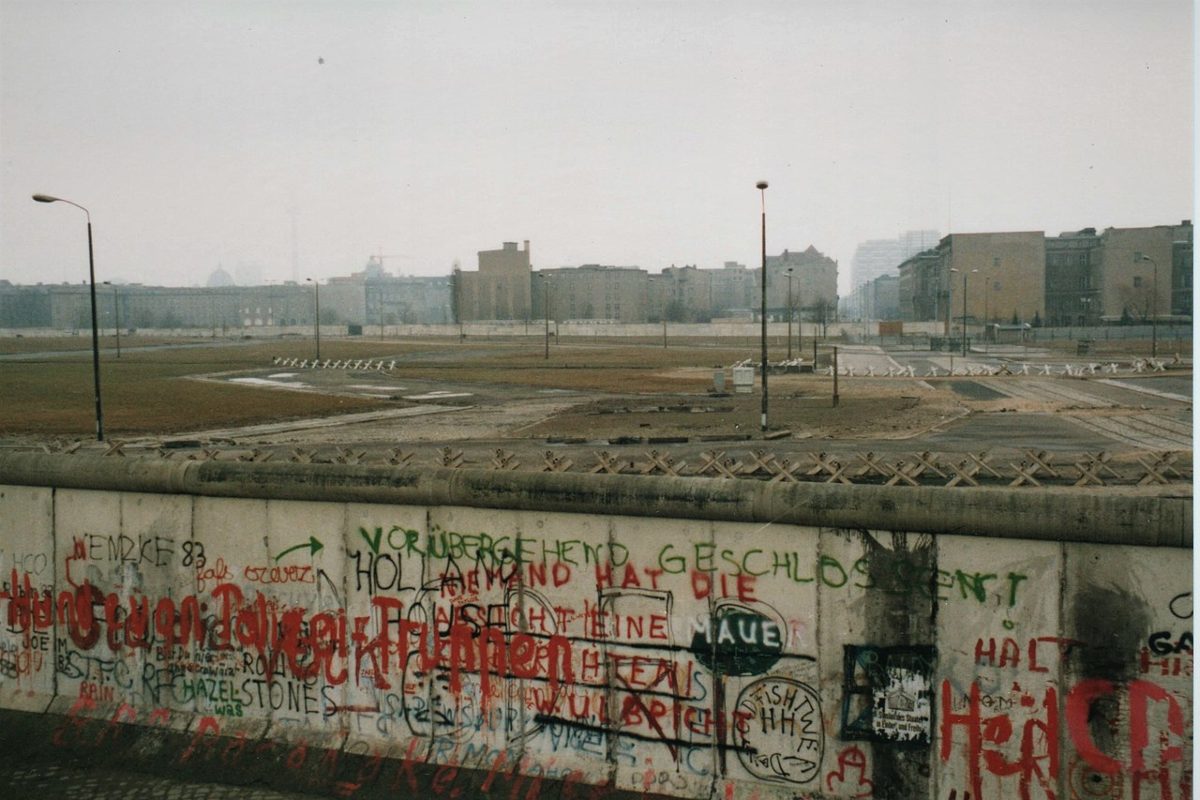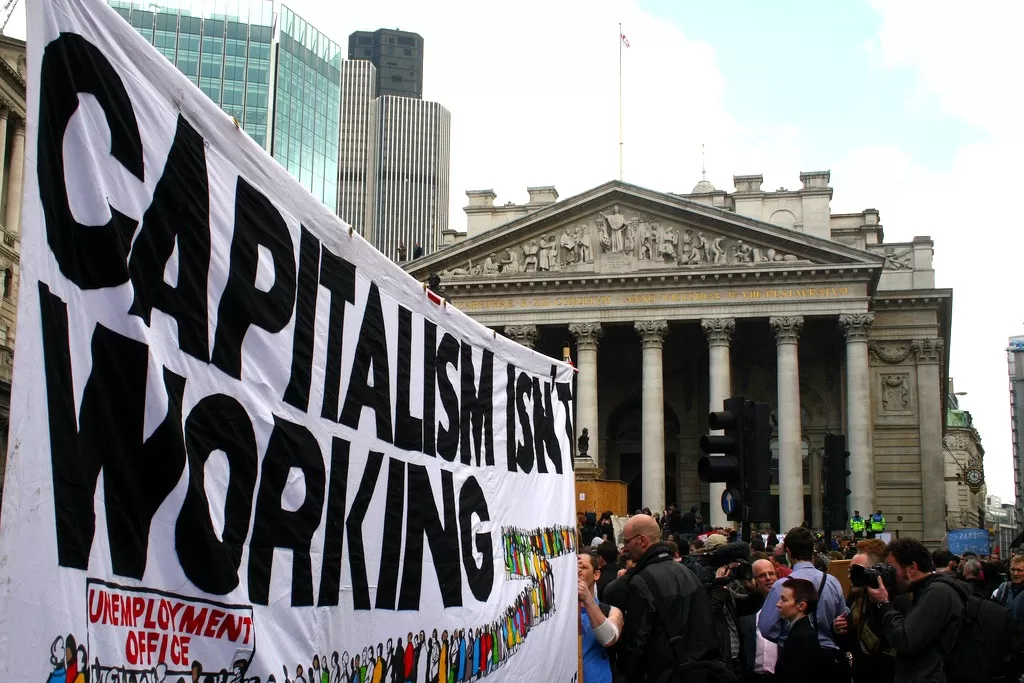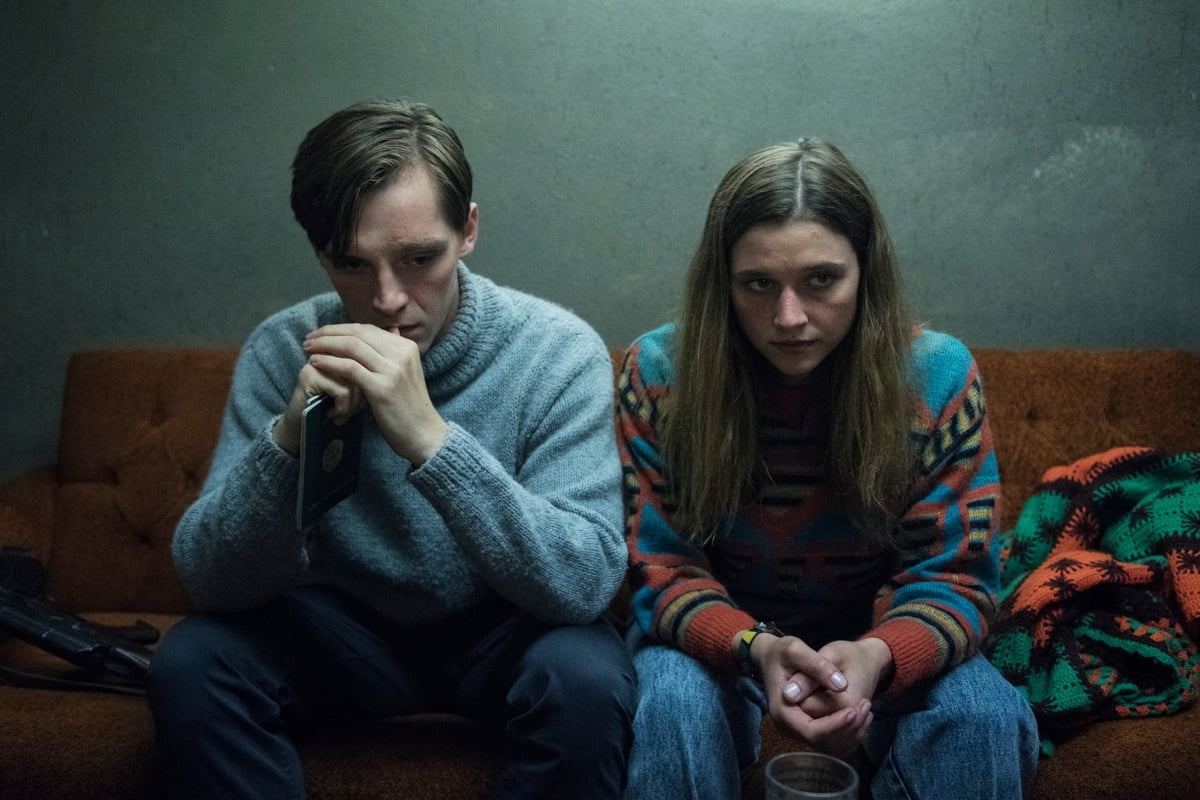Cold-war spy thriller Deutschland paints a nihilistic picture about humanity’s future. Equating Communism with Stalinism, the show sees no alternative but the crisis-ridden capitalist system. We must fight for a real socialist alternative.
The Deutschland TV series – available on More4 – is a gripping cold-war spy thriller. Beginning with Deutschland 83 and then Deutschland 86, the show has now come to an end with a final eight-episode installment, Deutschland 89, set against the tumultuous backdrop of the collapse of Stalinism in East Germany (GDR).
The series follows the story of a young GDR border guard turned Stasi agent named Martin Rauch (Jonas Nay).
Rauch works for the HVA, the foreign intelligence branch of the East German secret services. Throughout the series, he finds himself thrown into various cold-war flashpoints, such as a near-nuclear war and the Angolan civil war.
The series has many innovative points – particularly in having a protagonist from behind the ‘Iron Curtain’. Despite these, however, Deutschland’s ultimate message is the all too familiar trope of ‘communism is bad’ and ‘there is no real alternative to capitalism’.
The crisis of Stalinism
 Throughout the series, the failures of Stalinism in the GDR and elsewhere are brought to the fore. In particular, Deutschland 86 focuses on the economic stagnation that beset the Eastern Bloc in the 1980s.
Throughout the series, the failures of Stalinism in the GDR and elsewhere are brought to the fore. In particular, Deutschland 86 focuses on the economic stagnation that beset the Eastern Bloc in the 1980s.
Due to this internal crisis, the HVA was tasked with finding new sources of income, so that the GDR could service its debts to the West. For example, the series shines a light on how the Stasi bureaucracy was selling weapons to the South African army, despite its official support for the ANC.
Such a scandalous betrayal on the part of Stalinist bureaucrats should come as no surprise. Poland’s parasitic clique, along the same lines, sold coal to the Thatcher government during the Miners’ Strike of 1984-85.
In Deutschland 89, the main characters now find themselves in Nicolae Ceaușescu’s Romania. In one striking scene, two spies attempt to order food in a restaurant, only to be told that there is no food or alcohol available, and yet the restaurants have been ordered to remain open.
These food shortages and treacherous deals with imperialists certainly were a reality for the Stalinist system, as it quickly unraveled in the 1980s.
The issue however, is that the series portrays all of this as the failure of communism. As Martin Rauch exclaims: “What is the alternative? Don’t say communism…Gulags, famine. All the people who disappeared under Stalin.”
Marxism vs Stalinism
Ultimately, the series simply provides another example of the near century-long tradition of equating Stalinism with communism and Marxism.
For Marxists, what emerged in the USSR under Stalin – then imposed upon the Eastern Bloc after 1945 – was a system of bureaucratic rule and mismanagement. In time, this bureaucratic cancer undermined, and ultimately destroyed, the principal gain of the 1917 October Revolution: the planned economy.
These states initially achieved significant leaps forward as a result of economic planning, which allowed for a rational utilisation of the nation’s resources. Indeed, in the 1950s, economic growth in the East outstriped that of the West.
Yet this growth was in spite of, not because of, the bureaucratic caste that presided over the planned economy. The Stalinist bureaucracy played no active role in production, but determined the distribution of commodities in favour of themselves.
This bureaucratic parasitism ultimately stifled economic development. Without democratic workers’ control, the increasingly complicated economy could not be effectively planned. This set the stage for stagnation.
The problem wasn’t a lack of ‘free enterprise’. Rather, it was a question of who ran the economy. This was revealed again by capitalist restoration in the 1990s, which resulted in economic collapse, unemployment, and hardship.
The only thing that could have restored economic growth and developed the productive forces was a political revolution – one that overthrew the Stalinist bureaucracy and put the organised working class in control.
Harsh realities
 Perhaps the biggest fault of the show is the way it treats the process of capitalist restoration. Overwhelmingly, the fall of the GDR is portrayed as a liberating experience, in which all East Germans were set to gain.
Perhaps the biggest fault of the show is the way it treats the process of capitalist restoration. Overwhelmingly, the fall of the GDR is portrayed as a liberating experience, in which all East Germans were set to gain.
Indeed, the show should be commended for pointing out the duplicitous and cynical nature of those who governed the GDR. For example, several HVA agents quickly convert themselves into budding entrepreneurs. And a whole arc of the series then follows their efforts to secure the East German Stadt-Bank in order to loot it.
The series, however, completely ignores the enormous poverty that was unleashed by the return of the market economy.
Interestingly enough, Deutschland does make reference to this process, mentioning a plan devised by ‘seditious individuals’ before the fall of the Wall known as ‘Treuhand’. In the series, this is portrayed as a project for redistributing state property equally amongst the citizens of the GDR.
In fact, Treuhand was an agency established by the GDR and subsumed into the re-unified Germany. It’s purpose was to carry out the process of privatisation of state property. In doing so, it helped make 2.5 million workers unemployed.
The poverty this unleashed continues to scar East Germany today. A significant layer of unemployed workers have been pushed into the lumpen-proletariat, unable to find work. And these ‘rust belt’ areas have become prime breeding grounds for the far-right AfD (Alternative for Germany).
Capitalist anxieties
 Despite glossing over the brutality of capitalist restoration, the show is by no means confident about capitalism’s future. This clear tone of pessimism is something that sets it apart from other cold-war spy series.
Despite glossing over the brutality of capitalist restoration, the show is by no means confident about capitalism’s future. This clear tone of pessimism is something that sets it apart from other cold-war spy series.
This is revealed explicitly by the show’s ending, which is a montage of the world’s current ills: from Trump’s wall between the USA and Mexico; to the ‘Fortress Europe’ approach taken by the EU leaders toward the refugee crisis.
The message is clear: capitalism and bourgeois democracy may have triumphed in 1991 – but these are under threat again. And indeed they are!
The failures of capitalism today are on display for all to see. Hundreds of millions across the world are being thrown into the most abject poverty. Meanwhile, figures like Bezos have accrued billions. This has produced a profound anger in society.
The show points to figures like Trump who have capitalised on this mood. But the real threat to capitalism rests with the working class.
There will be more right-wing populists and demagogues in the stormy years to come. But they cannot offer a solution to the crisis. And so they too will be pushed to the side.
To quote one recent editorial from the Financial Times, a major mouthpiece of the ruling class: “It is just a matter of time before the pitchforks come out for capitalism itself.”
Deutschland 89 is a highly engrossing spy thriller – one laced with all the pessimism that has beset the capitalists and their apologists as the profit system descends deeper into crisis.
But the Marxists, by contrast, do not share this doom and gloom. We are full of revolutionary optimism: confident that this rotten status quo can – and will – be overthrown by the working class, clearing the path for a bright socialist future.






